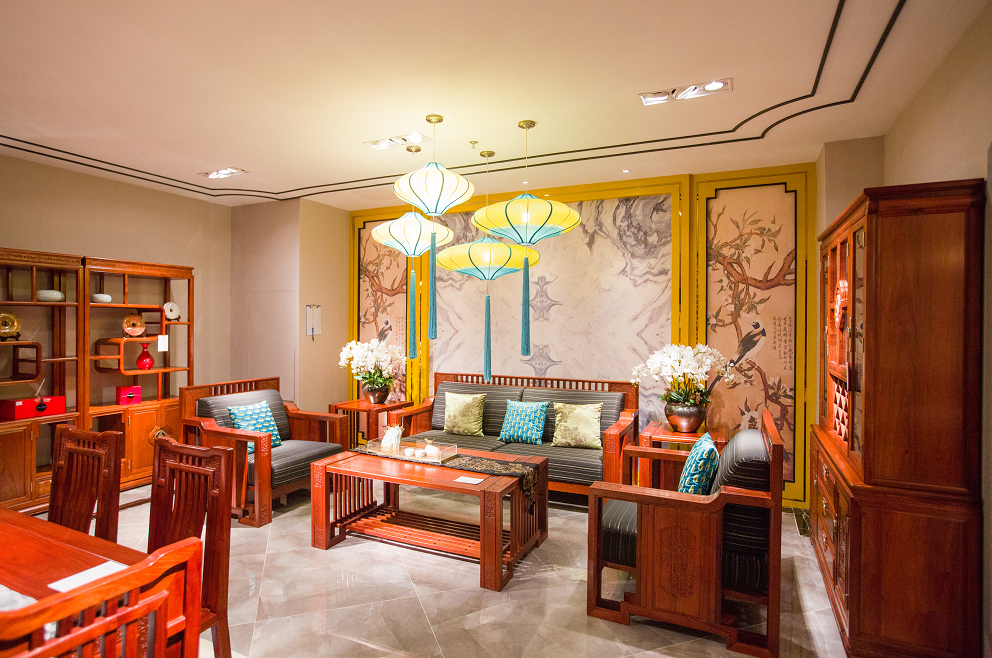Sustainable Materials: Eco-Friendly Solutions for Modern Homes
In today's fast-paced world, as we witness escalating concerns about environmental degradation and climate change, sustainable living has become imperative.
Modern homeowners are increasingly seeking eco-friendly solutions to reduce their carbon footprint and promote a greener lifestyle. One pivotal aspect of sustainable living is the use of environmentally friendly materials in constructing and furnishing our homes. In this article, we will explore the various sustainable materials available for modern homes and their positive impact on the environment.

Natural Wood Alternatives
Bamboo
: Bamboo is a rapidly renewable resource that is gaining popularity in the construction industry. Its quick growth and low impact on natural habitats make it an excellent alternative to traditional hardwoods.
Cork: Cork is derived from the bark of cork oak trees, and harvesting it doesn't harm the trees. It offers excellent insulation properties and is often used for flooring and wall coverings.
Salvaged Wood: Repurposing salvaged wood from old structures or driftwood from rivers and seas not only reduces waste but also adds a unique character to the home decor.
Recycled and Reclaimed Materials
Recycled Glass
: Glass is infinitely recyclable, and using recycled glass in countertops and decorative elements helps reduce the demand for virgin materials.
Recycled Metal: Steel and aluminum are widely used in construction. Opting for recycled metal not only conserves resources but also cuts down energy-intensive extraction processes.
Reclaimed Bricks: Using reclaimed bricks not only preserves the charm of historical buildings but also prevents the need for new brick production, saving energy and reducing emissions.
Energy-Efficient Insulation
Cellulose Insulation
: Made from recycled paper, cellulose insulation offers a highly effective and eco-friendly way to insulate walls and attics.
Wool Insulation: Natural wool fibers provide excellent thermal insulation and are free from harmful chemicals, making them a healthy option for the environment and residents alike.
Sustainable Flooring Options
Cork Flooring
: Besides being sustainable, cork flooring is comfortable, and durable, and resists mold and mildew growth, making it a healthy choice for modern homes.
Linoleum: Made from linseed oil, cork dust, and other natural materials, linoleum is a biodegradable flooring option with a long lifespan.
Reclaimed Wood Flooring: Utilizing reclaimed wood as flooring not only reduces deforestation but also adds character and history to the home.
Energy-Saving Lighting Solutions
LED Lighting:
LED bulbs consume significantly less energy, last longer, and contain no harmful substances like mercury, making them an eco-friendly lighting choice.
Solar-Powered Lights: Incorporating solar-powered outdoor lighting reduces dependency on the grid and harnesses clean, renewable energy.
Water-Saving Fixtures
Low-Flow Toilets
: Low-flow toilets significantly reduce water usage and contribute to water conservation efforts.
Water-Efficient Faucets: Water-efficient faucets and showerheads help conserve water without compromising on functionality.
Innovative Eco-Friendly Paints
Low-VOC Paints
: Volatile Organic Compounds (VOCs) in traditional paints release harmful chemicals into the air. Low-VOC or VOC-free paints are non-toxic and better for indoor air quality.
Milk Paint: Made from natural ingredients like milk protein, lime, and pigments, milk paint is a safe and biodegradable option for adding color to walls and furniture.
Green Roofing Solutions
Living Roofs
: Green roofs covered with vegetation provide natural insulation, reduce urban heat islands, and mitigate stormwater runoff.
Recycled Rubber Roofing: Made from recycled tires, rubber roofing is a durable and sustainable alternative to traditional roofing materials.
Smart Home Technology for Energy Management
Home Energy Monitoring Systems
: These systems provide real-time data on energy consumption, enabling homeowners to make informed decisions about energy usage and conservation.
Smart Thermostats: Programmable thermostats optimize heating and cooling, reducing energy waste and utility bills.
Conclusion
From eco-friendly construction materials to energy-efficient fixtures and smart home technologies, there is a wide array of options available to reduce the ecological impact of our homes. By incorporating these sustainable materials and eco-friendly solutions into your modern home, you can create a space that not only benefits the environment but also promotes a healthier and more comfortable living environment for you and your family.
Embracing sustainable practices not only benefits the planet but also enhances the comfort, health, and value of our living spaces. Making the switch to eco-friendly solutions is a step towards a more sustainable and harmonious relationship between human habitation and the natural world.
